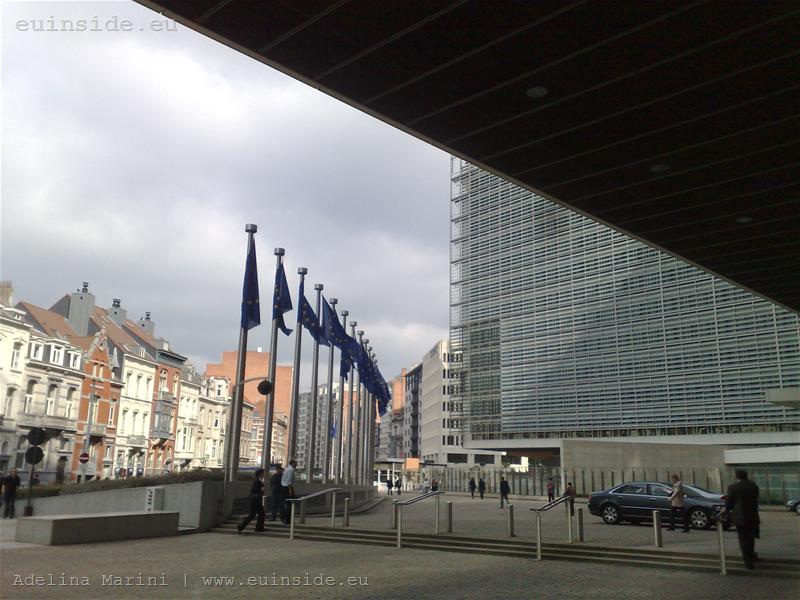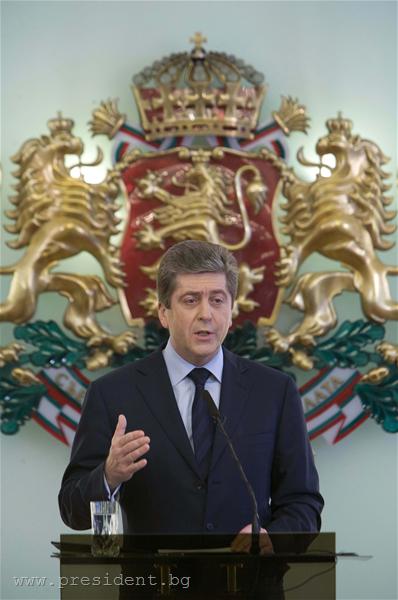Reserved support for "Europe 2020"
Ralitsa Kovacheva, March 28, 2010
 The European leaders supported the proposed by the European Commission strategy “Europe 2020” for economic recovery of the Union in the next 10 years, but not quite. The 5 main targets of the strategy (in terms of employment, R&D, green energy, education and reduction of poverty) were approved by the 27 member states in general. But in the Council Conclusions the specific parametres and formulations, however, were changed and now differ from the original proposal of the Commission.
The European leaders supported the proposed by the European Commission strategy “Europe 2020” for economic recovery of the Union in the next 10 years, but not quite. The 5 main targets of the strategy (in terms of employment, R&D, green energy, education and reduction of poverty) were approved by the 27 member states in general. But in the Council Conclusions the specific parametres and formulations, however, were changed and now differ from the original proposal of the Commission.
The target, aimed at bringing the employment rate for women and men aged 20-64 up to 75% remains unchanged, including through greater participation of youth, older workers and low skilled workers and the better integration of legal migrants.
The target for improving the conditions for research and development, in particular increasing the combined public and private investment levels in this sector to 3% of GDP, is also preserved. The Commission, however, will elaborate further on an indicator better reflecting R&D and innovation intensity.
Regarding climate target, reducing greenhouse gas emissions by 20% compared to 1990 levels remains; as well as increasing the share of renewables in overall energy consumption up to 20%; and moving towards a 20% increase in energy efficiency. “The EU is committed to take a decision to move to a 30% reduction by 2020 compared to 1990 levels as its conditional offer with a view to a global and comprehensive agreement for the period beyond 2012, provided that other developed countries commit themselves to comparable emission reductions and that developing countries contribute adequately according to their responsibilities and respective capabilities”, is written in the conclusions.
A significant change is made in the education targets and the reduction of poverty. From the original Commission proposal were removed concrete figures and only common phrases remained.
According to the proposal, “The share of early school leavers should be under 10% and at least 40% of the younger generation should have a tertiary degree” and “20 million less people should be at risk of poverty”. In the Conclusions the Council supports the philosophy of the targets, but notes, that “further work is needed on appropriate indicators”.
The Commission President Jose Manuel Barroso explained the change with the  discussion between the Commission and some of the member states about competences. According to some national leaders, the EU cannot act in the area of education and reduction of poverty, Barroso said. But he added, that according to the Lisbon Treaty's article 151, fight against poverty is a priority for the EU. And article 153 says that the Union supports and complements national activities against poverty. That’s why ultimately there was an agreement education and reduction of poverty to remain common targets, but appropriate indicators to measure progress in these areas to be developed no later than the European council in June, Barroso said in his statement.
discussion between the Commission and some of the member states about competences. According to some national leaders, the EU cannot act in the area of education and reduction of poverty, Barroso said. But he added, that according to the Lisbon Treaty's article 151, fight against poverty is a priority for the EU. And article 153 says that the Union supports and complements national activities against poverty. That’s why ultimately there was an agreement education and reduction of poverty to remain common targets, but appropriate indicators to measure progress in these areas to be developed no later than the European council in June, Barroso said in his statement.
“We agreed to do further work between now and June, especially on the education and the poverty targets. Our goal is, by June, to have not only the overall European targets but also national targets that should be consistent with the European targets. I think it is very important also to come to a concrete agreement on these two targets, education and the fight against social exclusion, because they also give to our common strategy the social dimension that it is required.”
The president of the Council Herman van Rompuy defined the question of proper indicators in education and social inclusion as “statistic” and stressed, that what was important was the unity in common goals.
Last week EurActiv wrote that the debate about education targets in the proposed 'Europe 2020' strategy was removed from the agenda of the EU summit after Germany expressed concerns that the proposed EU objective would step on its federal competences. According to that media, the move has angered European Commission President José Manuel Barroso who insisted that skills were a key part of restoring competitiveness. Several member states attempted to remove poverty from the 2020 strategy altogether, arguing that it went beyond EU's competence and that creating jobs was the primary tool for tackling social exclusion.
 The other important issues discussed at the summit were climate change and the next G20 meeting in Toronto, Jose Manuel Barroso said:
The other important issues discussed at the summit were climate change and the next G20 meeting in Toronto, Jose Manuel Barroso said:
“On climate change, I am also pleased at the strong consensus to keep climate change at the top of our agenda, in Europe, and globally. It was a very fruitfully discussion about the way to proceed forward. In fact, we are now in touch with many of our most important partners, there are consultations, and I think we can build on these consultations for Europe to keep the lead in this very important issue.”
He stressed that the EU must have an agreement on some of the key financial services regulation files (hedge funds, bank capital, CRD) and on the supervision package by the time of the G20 summit in June .
“There are some worrying signals: we see that since the crisis it is not so acute as it was some time before, there is not probably the same commitment from all the parties to keep the emphasis on financial reform supervision”, Barroso stressed.
 | © euinside
| © euinside | © euinside
| © euinside | © www.president.bg
| © www.president.bg | © euinside
| © euinside